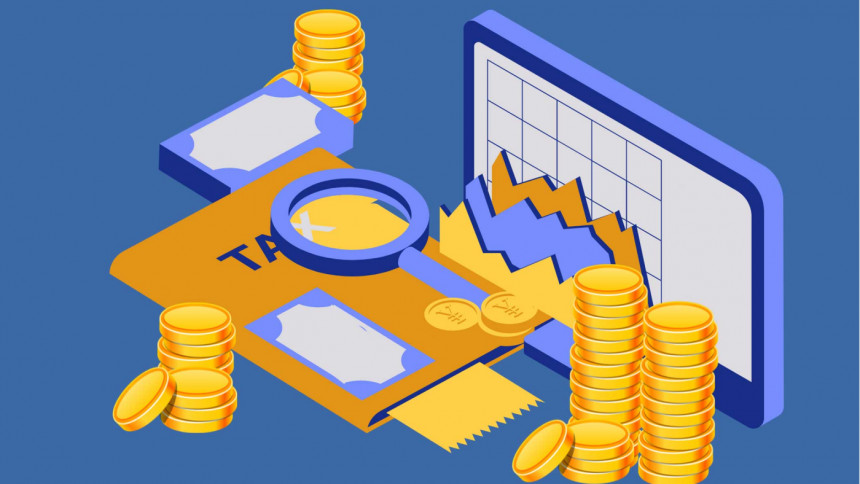Originally posted in The Daily Star on 21 February 2022
 In the run-up to the budget for the 2022-23 fiscal year (FY), the National Board of Revenue (NBR) has initiated discussions with various professional and business organisations—like the previous years. The finance ministry also does the same. The NBR’s focus is mainly to seek fiscal proposals from the stakeholders. This is a commendable practice, which extends the opportunity to businesses and organisations to suggest not only how various sectors can get respite from tax burden, but also how to improve the revenue mobilisation by improving the collection system. It is widely discussed that despite Bangladesh’s impressive growth, the domestic resource mobilisation is too poor. Unfortunately, the NBR is yet to gain any visible success in bringing all the eligible income earners under the tax net. It is hoped that, through such regular consultations between the NBR and stakeholders, a better tax system will come about in the near future.
In the run-up to the budget for the 2022-23 fiscal year (FY), the National Board of Revenue (NBR) has initiated discussions with various professional and business organisations—like the previous years. The finance ministry also does the same. The NBR’s focus is mainly to seek fiscal proposals from the stakeholders. This is a commendable practice, which extends the opportunity to businesses and organisations to suggest not only how various sectors can get respite from tax burden, but also how to improve the revenue mobilisation by improving the collection system. It is widely discussed that despite Bangladesh’s impressive growth, the domestic resource mobilisation is too poor. Unfortunately, the NBR is yet to gain any visible success in bringing all the eligible income earners under the tax net. It is hoped that, through such regular consultations between the NBR and stakeholders, a better tax system will come about in the near future.
The NBR has the most important role in creating fiscal space for the government to undertake its activities. However, the target imposed on it has remained unfulfilled in the last several years. Indeed, the targets seem to be unrealistic and beyond the NBR’s capacity given its current institutional framework. One may recall that, in the budget for FY2021-22, the revenue income—which includes both tax and non-tax income—has been set to be 11.3 percent of GDP. Of the total revenue target, tax mobilisation is the highest—about 85 percent. Also, in FY22, the revenue growth target has been set at 27 percent. But the trend of revenue growth in July-October of FY22 indicates that achieving this target will require more dynamic efforts, since revenue mobilisation has to grow by 30.7 percent in the rest of the fiscal year.
Though several infrastructural projects are being financed through foreign loans, domestic resource mobilisation is crucial for achieving the government’s short-, medium- and long-term objectives. With domestic resources, the government can prioritise its spending in line with policy priorities. But the constant shortfall of domestic resources creates a real challenge for the government in fulfilling such pledges. At the current level of domestic resource mobilisation, implementing its political commitments is difficult.

As Bangladesh is set to become a developing country by 2026, higher domestic resource mobilisation will become even more important. As a developing country, we will not be eligible for foreign aid and concessional loans. Of course, the country’s image will be enhanced and the strength of our economy will help us source funds from the global market. But that may be expensive, since we have to pay the market rates of interest for securing such loans. This could increase the debt burden on the country. As the size of the economy is expanding, the need for additional finance will continue to increase. With the current effort for tax collection, it is not possible to meet the resource requirements.
It was reported in the FY22 budget speech that the number of taxpayers in Bangladesh was only 2.5 million. In a country of more than 165 million people, this number is astonishingly low. Reasons for tax avoidance are many. Some people feel once they have a tax identification number (TIN), they are stuck forever and have to pay tax even when they have income below the threshold level. Some feel there’s no point of paying tax since they don’t get their expected service from the government as citizens. Some feel since they need to pay bribes at levels of the government to get their jobs done, they shouldn’t have to pay additional money as tax. So, while there is a lack of awareness regarding the responsibility to pay tax as a citizen of the country, there is also a strong argument for not doing so. The onus is, hence, on the government to eliminate such perceptions by providing hassle-free services to the citizens. The policymakers will also have to ensure that taxpayers’ money is not wasted in the name of development or misappropriated through corruption. Good governance in the implementation of development projects and economic and social programmes is, therefore, key to mobilisation of higher domestic resources.
As for the NBR, a number of specific measures should be taken to increase revenue mobilisation. One is implementing e-governance. Technology can help establish an easy tax collection procedure and increased compliance as well. It can also be used to track people’s lifestyle to determine their tax rates. Often, there is a mismatch between the declared income of individuals and their expenditure patterns. This is known to the NBR. With a modern system, more human resources and higher skills, NBR’s efficiency can be enhanced in this regard.
A number of reform measures proposed a few years back are yet to be completed. Among the proposed measures are the upgradation of Automated System for Customs Data (ASYCUDA), consolidation and integration of Integrated Budget and Accounting System (iBAS++), electronic return filing, electronic tax deducted at source (e-TDS), automated customs risk management, and introduction of authorised economic operator system. These measures could help bring much efficiency in tax management. As the NBR formulates revenue measures for various sectors in the national budget for FY2022-23, the operationalisation of reform measures, some of which are already on the table, should not be sidelined.
Dr Fahmida Khatun is executive director at the Centre for Policy Dialogue (CPD). Views expressed in this article are the author’s own.


